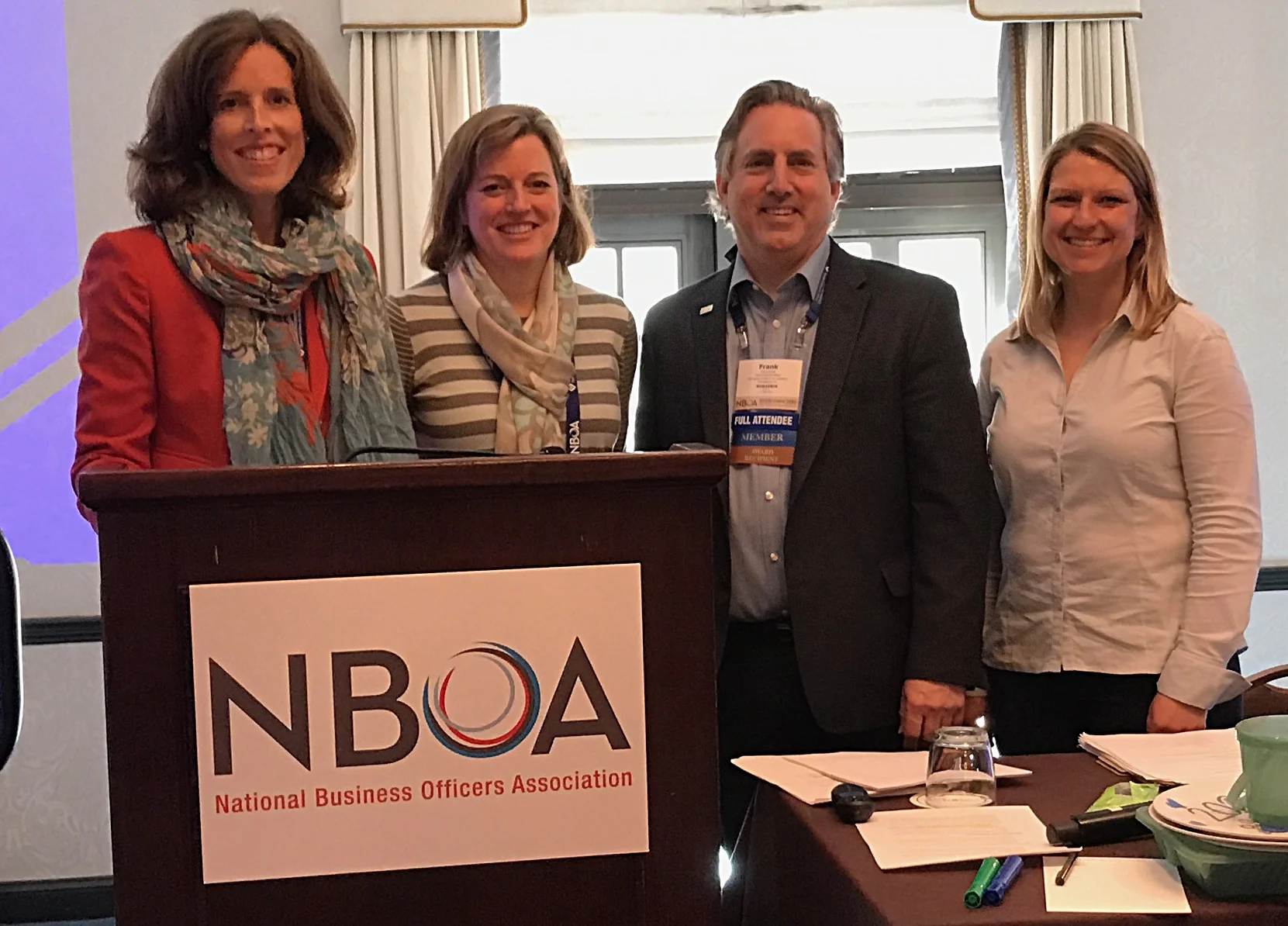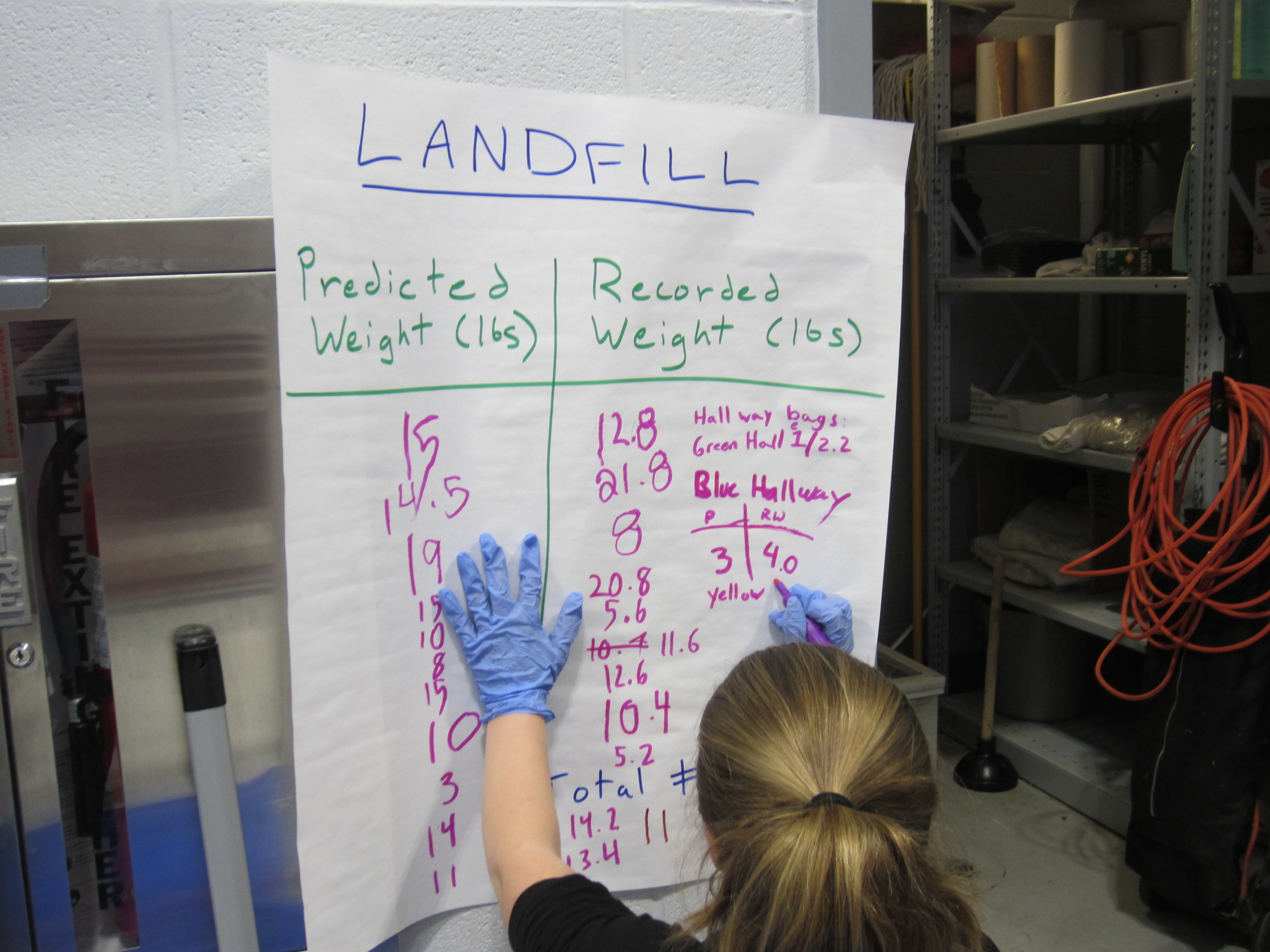Teacher Christine Szegda received a grant from the Delaware Pathways to Green Schools Program. Ms. Szegda enlisted school sustainability consultants, Mary Ann Boyer and Sam York of Boyer Sudduth Environmental Consultants (BSEC) to help plan and run the audit. Together, they set the date for the first waste audit on March 13th and developed an agenda for the day.
When the day came, Ms Szegda’s TAG students, the Cooke Elementary Custodial staff, BSEC, and parent volunteers came together to make the day a success. The fact that it was chili day did not deter the TAG students, who eagerly investigated the waste in order to find the information that would let them develop an action plan for reducing waste.
What the students found was staggering: the school’s 653 students in grades K - 5 produced 153 pounds of trash and 13 pounds of recycling from just one day of cafeteria waste, and 33.4 pounds of liquid waste from emptied water and milk bottles. Using these numbers, we can estimate that in one week, the school produces 653 pounds of trash, 65 pounds of recycled materials, and 167 pounds of liquid waste. Imagine what those numbers are in a school year? But this is only a single school! As parent volunteer Lisa Call said, “Imagine how much is wasted in Delaware alone, not to mention the rest of the country.”
These numbers motivated TAG students to immediately pull together plans for how to reduce the amount of waste produced. Ms. Szegda and her students will develop an action plan for making changes to reduce waste and increase recycling. They will implement changes and conduct a second waste audit in the spring to compare their results with this first one. According to one student, "We want the cafeteria to stop using styrofoam lunch trays. They get used once and then sit in a landfill for thousands of years after!”
Students were surprised by how much food was thrown away each day. “After combing through unopened snack bags, unpeeled bananas, and half eaten lunches,” noted Ms Szegda, “they had a real ah-ha moment.” The students learned that the average American throws out 4.4 pounds of trash a day. After seeing the food waste, students began to think about more sustainable and affordable solutions. Giving students only as much food as they will eat and encouraging students to use the "share bin" would help reduce the amount of food that would end up in a landfill each day.
The students found some positive data too: almost everything that was put into the recycling was recyclable. They now know, however, just how big their task is. Over the coming weeks, Ms. Szedga and her students will look more closely at waste and help teach others about what they can do to lessen their environmental footprint. The students will review the data from the audit and develop an action plan for reducing the waste. Ms Szedga reflected, “Making effective change always takes hard work, but I’m sure the students will use their creative energy and enthusiasm to show others how to make Red Clay a greener place.”
Article submitted by Sam York, intern of Boyer Sudduth Environmental Consultants.



















